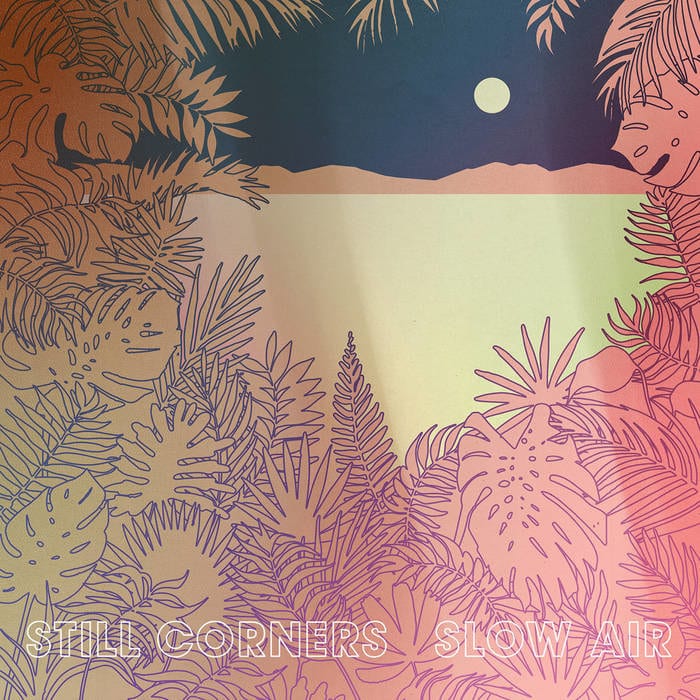
A lone car drives through the twirling hillside roads. The car seems to sink into the paved maze leaving only a distant trail of tinted red. Directions are disarrayed, and distances are untracked. Everything seems lost until the headlights illuminate the crossroad and the sign reflects “MULHOLLAND DR“.
Still Corners have drawn many comparisons to David Lynch films, a noted influence of theirs. Prior albums such as Strange Pleasures evoke Lynchian scenes of oneiric car rides, much like the aforementioned opening credits to Mulholland Drive. Even more, akin to Lynch’s frequent collaborators Angelo Badalamenti and Julee Cruise, Still Corners’ multi-instrumentalist Greg Hughes and vocalist Tessa Murray approach dream pop through a synth-laden, nocturnal scope.
However, Still Corners’ latest album Slow Air attempts to move away from their synth-heavy compositions, and back into their roots in guitar-driven neo-psychedelia. As Murray explains, “We wanted to hear beautiful guitar and drums and an otherworldliness, something almost indefinable along with a classic songwriting vibe.” Even recording in Austin, Texas, the once London-based duo travels the States in search of a new direction, “from the deserts of Texas and Arizona to the beaches of California and mountainous regions of the northeast”.
Slow Air begins with a purpose. Unfurling the 16-fold map, point A to B is plotted through the winding highways. “In the Middle of the Night” revs the engine with a bright, jangly guitar. Its electric tone rings a sharp heat like the sun captured in an aluminum car hood, and the always ethereal vocals of Murray only cool it. “The Message” drives ahead as Murray sings, “I love to drive the highways / the skyways / Just to get lost”, over a bouncing bassline and sliding guitar. “Black Lagoon” continues to play up the lonesome road trip tropes as its music video features Murray driving a white Mustang convertible across the barren roads of California, Arizona, and Texas.
Yet, as Slow Air continues, it loses its “classic song writing vibe” and returns to their established dream pop sounds. “Dreamlands” drives back to the midnight Lynchian roads and Murray’s vocals float “where the sky is gold”. “Whisper” reminds us of Still Corners’ love for Broadcast as its sustained arpeggio spins into a psychedelic daze that is reminiscent of Work and Non Work. Likewise, “Fade Out” rings a fuzzed-out synth that imitates the Tender Buttons pushed by late Trish Keenan. So, even while searching for new sounds, integrating more organic instruments, their tendencies for dream pop surface.
While creating washed-out dream pop is a strength of Still Corners, the stylistic shuffles elude their intentions to embody the Slow Air, the sweltering airs of Texas. Accordingly, “Welcome to Slow Air” presents a winding instrumental that seems to betray the Texas-inspired title. While looping with little variation, irrelevant tropical sounds are sprinkled throughout. Similarly, the closing instrumental “Long Goodbyes” layers disjointed synth lines and purposeless guitar riffs with imprudent regard for movement, fading away without developing any discernible concept.
Slow Air seems to get lost in its chase for Americana. Falling into the tropes of driving aimlessly through the desert roads, its songs begin to lose direction. Swerving back and forth between the lanes of psychedelic road rock and dream pop, the album never reaches its intended destination. However, while directionless, the journey still uncovers beautiful moments. “The Message” and “Black Lagoon” achieve their search for something new, and “Fadeout” flexes something old. In this way, Slow Air shows the potentials of their search for a different direction.


![Call for Papers: All Things Reconsidered [MUSIC] May-August 2024](https://www.popmatters.com/wp-content/uploads/2024/04/all-things-reconsidered-call-music-may-2024-720x380.jpg)



